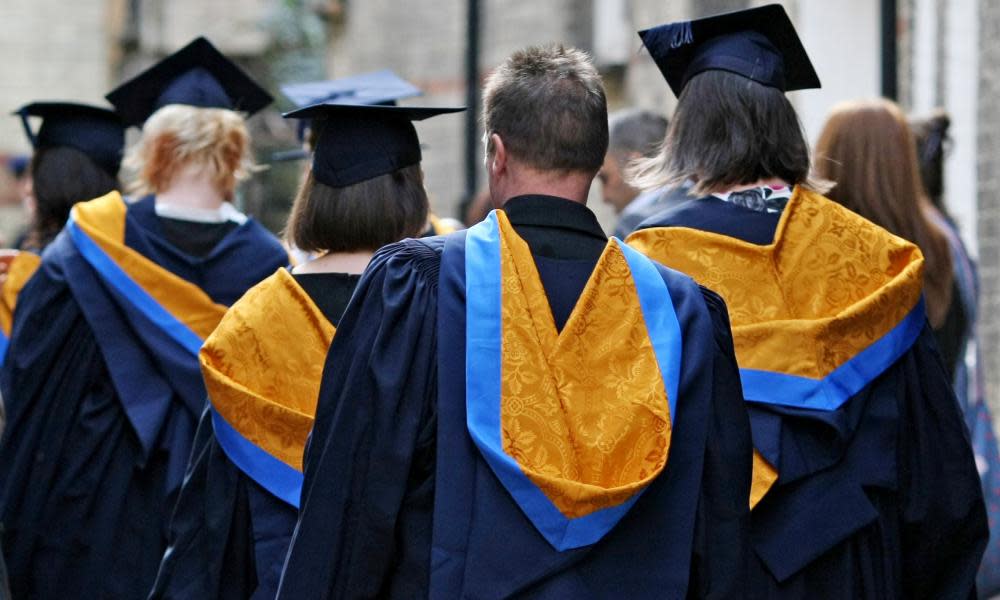A fairer way to finance university students | Letters

What Jo Johnson, the universities minister, forgets (Student finance system is fair and efficient, 14 August) is the distorting effect of the very unequal distribution of wealth in this country. Those whose parents or grandparents can afford to pay off their student debts on graduation are not burdened, as are the majority of graduates, with repayment over 30 years via the 9% premium on income tax. In other words, many graduates from well-to-do families escape having to pay this 9% addition to income tax, whereas those from less affluent backgrounds do not. Is this really a fair system?
Nor can a repayment system in which 75% of recipients do not pay off their debts over those 30 years be called efficient. What has driven the system, and indeed its extension to adult education and nursing, is the fact that the Student Loans Company’s borrowing is, like the notorious public finance initiative, “off the books” and therefore does not register as government borrowing – until the debt is written off 30 years down the line when it comes back on to the books.
I agree with Johnson that it is fair that graduates should make some contribution to costs from their acknowledged higher earnings but, as the calculations by London Economics for MillionPlus some years ago showed, a straightforward 3% graduate tax paid by all graduates earning above threshold over a 30-year period would be just as cost effective as the current loan system. Such a system would be both fairer and more efficient. But in the short run, it would require accepting upfront government debt – a taboo to the Treasury.
Margaret Sharp
Former HE spokesperson for the Liberal Democrats, House of Lords
• For all of us working to improve the lives of young people with disabilities, it’s concerning to see the government’s own university tsar admit there is no true equality of opportunity at university (Pupils shun university amid cost concerns, 10 August). Deaf young people are 50% less likely to go to university than their hearing friends – and for those who do make it, the higher education system throws up enormous barriers.
I know from personal experience how hard it can be as a deaf student, having being left without proper funding or support for the whole of my first year. It is disheartening to see that the government is admitting that the vision of a level playing field for all young people is still so far off. For deaf young people, and so many others, action is needed immediately.
Ian Noon
Head of policy and research, National Deaf Children’s Society
• If, on average, graduates increase their lifetime incomes by £170,000 to £250,000, they would pay an extra £51,000 to £75,000 more tax which, coincidentally, is about the same as the debt they now end up with after studying, so surely this is the way to fund university education? But this complacency, in the face of the much higher drop-out rate among poorer students, is typical of how the Tories view the world. “The proportion of young people on free school meals is at a record high,” says Jo Johnson, omitting to mention that under the Tories this benefit is under pressure from their penny pinching.
David Reed
London
• So the universities minister now has a crystal ball. I’d like to know how he, or anyone else, is able to say with confidence that students graduating now will earn up to £250,000 more during their lifetimes (ie by about 2057). Logically, it makes no sense to compare this generation with my own. When I graduated in 1976 only 9% of 18-year-olds attended university. Now, with the figure nearer 40-45%, high levels of graduate unemployment and an economic system facing years of further stagnation and decline, only a crazed optimist would wish to engage in such specious speculation.
Dr Peter Elmer
Uley, Gloucestershire
• Join the debate – email guardian.letters@theguardian.com
• Read more Guardian letters – click here to visit gu.com/letters

 Yahoo News
Yahoo News 
